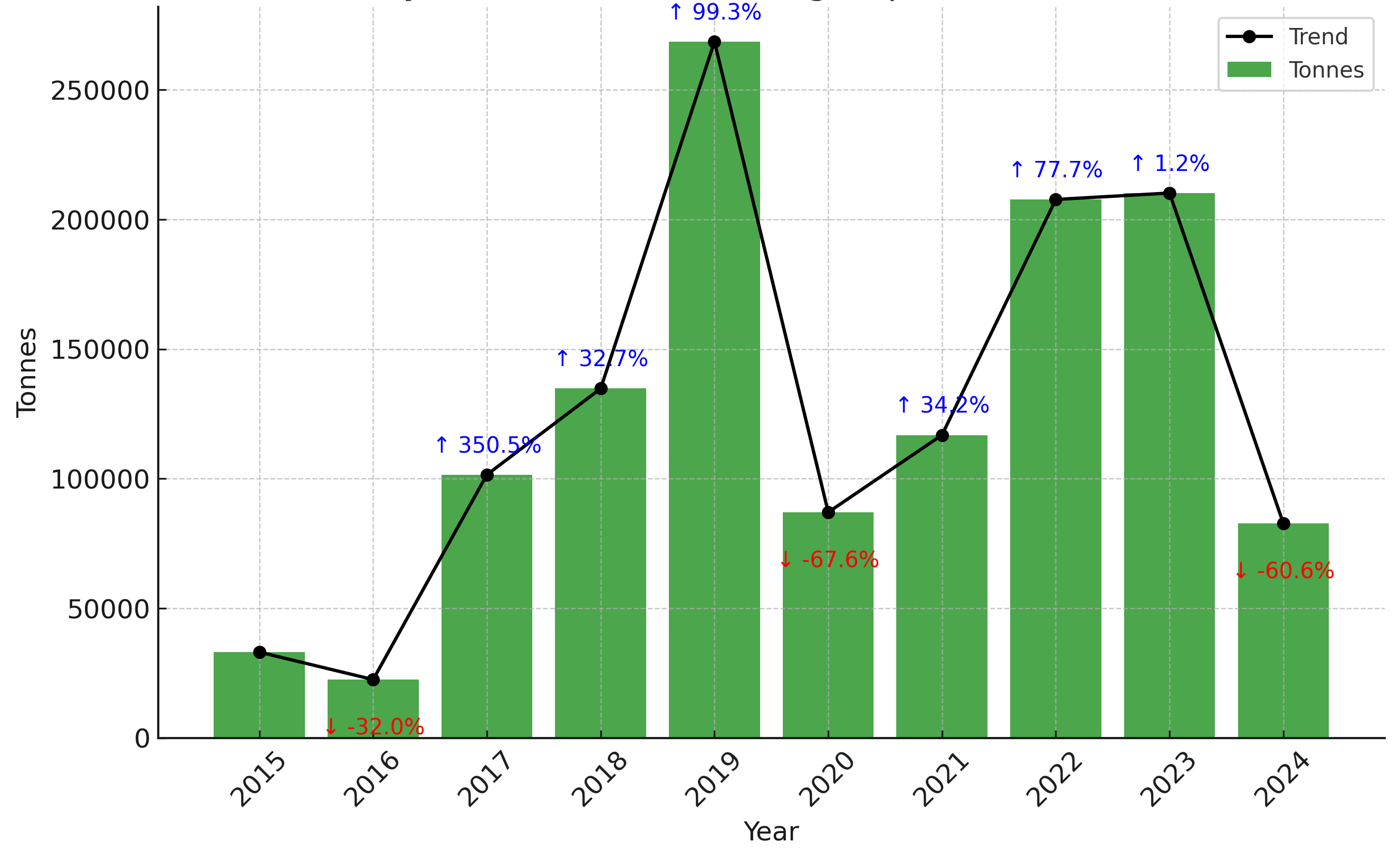“Australia is just killing our aluminium market,” says Trump's top trade adviser Peter Navarro
On December 4, 2024, President-elect Donald Trump announced that Peter Navarro, 75, will serve as Senior Counsellor for Trade and Manufacturing in his upcoming administration.

In this role, Navarro will be responsible for advancing and effectively communicating Trump's Manufacturing, Tariff, and Trade Agendas, Trump stated in a series of posts on Truth Social. Navarro, a key trade advisor during Trump's first term, will once again play a pivotal role in shaping the administration's economic policies.
Australia successfully negotiated an exemption when the first Trump administration imposed new tariffs on aluminium and steel imports in 2018. However, the US claims a verbal agreement was made, under which Australia pledged not to exploit its exemption by significantly increasing aluminium exports to the US.
As senior trade and manufacturing counsellor for US President Donald Trump, Peter Navarro is adamant that the agreement has not been met.
Navarro told the Atlanta media house, "Australia is just killing our aluminium market".
A niche contender in a competitive market
Despite recent attention to Australian aluminium, its presence in the US market remains relatively modest. Only about 10 per cent of Australia’s aluminium exports are destined for the United States, with the majority being shipped to Japan and South Korea. In fact, Australian aluminium accounts for just 2.5 per cent of total US aluminium imports, a market largely dominated by Canada.
Australia: Aluminium exports to US, 2015-2024 (tonnes)
Source: US Department of Commerce
This has raised doubts about claims that Australian aluminium is significantly impacting the American industry. Paul Myler, former Deputy Ambassador to the US and now CEO of advisory firm Strat Q, describes such assertions as an overreach.
Myler said, "If Australia can destroy the US aluminium industry, then they must really be on their knees because we're not that big a player."
Australia has halted alumina exports to Russia, a key global aluminium producer, disrupting its supply chain. Simultaneously, the United States has ceased importing Russian aluminium, opening opportunities for other countries to fill the market gap.
Both sides will suffer adverse effects
Since Donald Trump's election last November 2024, the government and industry have been bracing for potential tariffs. The recent tariff announcement, though expected, has set the steel and aluminium sectors on high alert, preparing for its possible implementation.
These tariffs could have significant repercussions on both sides of the Pacific. Australia, which currently exports around 10 per cent of its aluminium to the US, may struggle to find alternative markets, especially amid heightened competition from other suppliers.
However, industry experts note that the US will still need to import aluminium, forcing American businesses to bear the 25 per cent tariff cost. The US lacks the domestic capacity to meet its aluminium demand. As the situation evolves rapidly, predicting its long-term impact remains uncertain.
Top image credit: The Boston Globe
This news is also available on our App 'AlCircle News' Android | iOS















.png/0/0)







